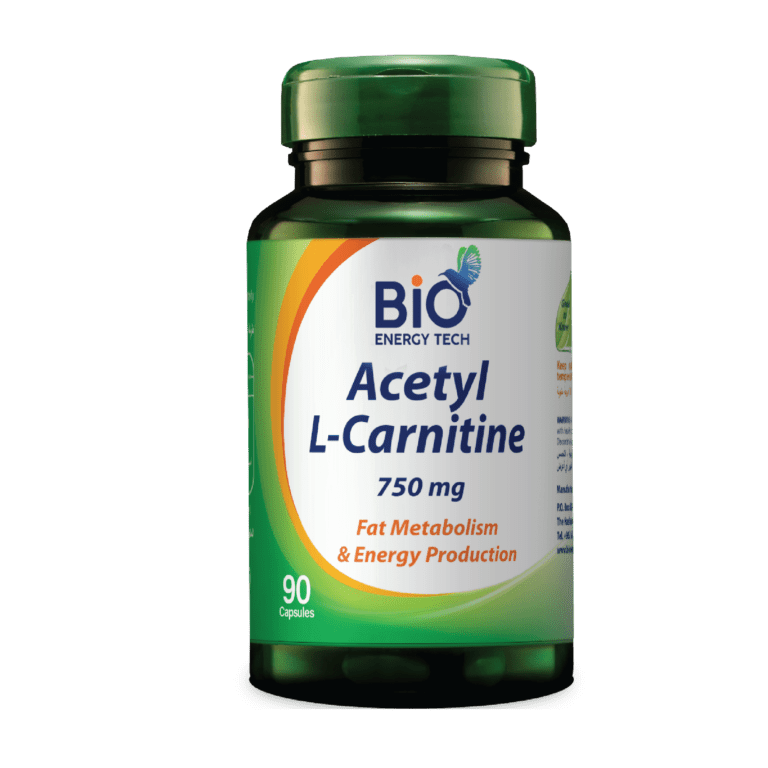Introduction
Excess weight and obesity are among the biggest health challenges in modern times, as they are associated with numerous chronic health issues such as heart disease, type 2 diabetes, and high blood pressure (World Health Organization, 2023). Various methods and approaches are used to tackle this issue, among which dietary supplements are prominent. L-Carnitine is a popular supplement believed to aid in weight loss and improve body composition (Pooyandjoo et al., 2016). L-Carnitine offers multiple benefits by assisting in the transportation of fatty acids to the mitochondria within cells for energy production, leading to more effective fat burning (Flanagan et al., 2010). L-Carnitine can be part of a comprehensive strategy to improve health and promote weight loss.
Mechanism of Action of L-Carnitine
L-Carnitine is a natural compound that plays a crucial role in fat metabolism. It is synthesized in the liver and kidneys from the amino acids lysine and methionine and can also be obtained from dietary sources such as red meat and dairy products (Rebouche, 2004). L-Carnitine works by transporting long-chain fatty acids into the mitochondria, where they are burned for energy (Kerner & Hoppel, 2000). This means that L-Carnitine helps the body use stored fat as an energy source rather than relying solely on carbohydrates. Without L-Carnitine, the body cannot effectively utilize fat as an energy source, leading to fat accumulation and weight gain (Brass, 2000). Therefore, sufficient amounts of L-Carnitine in the body can help reduce fat accumulation and stimulate more effective weight loss.
Benefits of L-Carnitine for Weight Loss
Research shows that L-Carnitine can help improve weight loss when combined with a balanced diet and regular exercise regimen (Malaguarnera et al., 2013). By enhancing the use of fat as an energy source, L-Carnitine can increase fat-burning rates, helping to reduce excess weight (Kelley & Kelley, 2012). Additionally, it can reduce fatigue and increase the ability to exercise, which further promotes weight loss (Villani et al., 2000). One study indicated that individuals taking L-Carnitine supplements experienced significant improvements in body mass index (BMI) and body fat percentage (Pooyandjoo et al., 2016). This reinforces the idea that L-Carnitine can be an effective tool in weight management.
Effect of L-Carnitine on Body Composition
Besides its role in weight loss, L-Carnitine plays an important role in improving body composition. It can help increase muscle mass relative to body fat (Broad et al., 2008). This effect is attributed to its ability to improve physical performance and increase endurance, allowing individuals to build muscle more effectively (Maughan, 2002). One study found that taking L-Carnitine supplements for 8 weeks led to significant improvements in muscle mass and body fat percentage among participants (Galloway & Broad, 2005). Additionally, L-Carnitine can reduce fat accumulation in areas where weight loss is difficult, such as the abdomen and thighs (Müller et al., 2002). This makes it an excellent choice for individuals looking to achieve overall improvements in their body composition.
Conclusion
L-Carnitine can be an effective addition to a weight loss and body composition improvement program. By enhancing fat burning and increasing energy, it can help achieve tangible results in weight loss and muscle building. However, it is always advisable to consult a healthcare provider before starting any dietary supplement to ensure it is appropriate for individual health conditions. It is also important to combine L-Carnitine with a healthy lifestyle that includes proper nutrition and regular physical activity for the best results. Individuals looking to use L-Carnitine for weight loss should be prepared to commit to a long-term healthy lifestyle to achieve lasting and sustainable results. In short, L-Carnitine can be an important part of a comprehensive strategy for weight loss and body composition improvement when used correctly.
References
Brass, E. P. (2000) ‘Carnitine and sports medicine: use or abuse?’, Annals of the New York Academy of Sciences, 904(1), pp. 272–278.
Broad, E. M., Maughan, R. J., Galloway, S. D. and Carlin, J. (2008) ‘Effects of supplementation with L-carnitine L-tartrate on muscle soreness and markers of muscle damage after a marathon’, Journal of Sports Sciences, 26(2), pp. 135-145.
Flanagan, J. L., Simmons, P. A., Vehige, J., Willcox, M. D. and Garrett, Q. (2010) ‘Role of carnitine in disease’, Nutrition & Metabolism, 7(1), pp. 1-14.
Galloway, S. D. and Broad, E. M. (2005) ‘Effects of 7 days of L-carnitine supplementation on endurance performance and oxidative stress’, International Journal of Sport Nutrition and Exercise Metabolism, 15(6), pp. 665-674.
Kelley, G. A. and Kelley, K. S. (2012) ‘The effect of L-carnitine supplementation on lipid profiles in adults: a meta-analysis of randomized controlled trials’, Preventive Medicine, 54(1), pp. 84-90.
Kerner, J. and Hoppel, C. (2000) ‘Fatty acid import into mitochondria’, Biochimica et Biophysica Acta (BBA)-Molecular and Cell Biology of Lipids, 1486(1), pp. 1-17.
Malaguarnera, M., Vacante, M., Giordano, M., Motta, M., Malaguarnera, M., Bella, R. and Rampello, L. (2013) ‘Oral acetyl-L-carnitine therapy reduces fatigue in overt hepatic encephalopathy: a randomized, double-blind, placebo-controlled study’, The American Journal of Clinical Nutrition, 97(4), pp. 759-766.
Maughan, R. J. (2002) ‘Nutritional ergogenic aids and exercise performance’, Nutrition Research Reviews, 15(2), pp. 245-260.
Müller, D. M., Seim, H., Kiess, W., Löster, H. and Richter, T. (2002) ‘Effects of oral L-carnitine supplementation on in vivo long-chain fatty acid oxidation in healthy adults’, Metabolism, 51(11), pp. 1389-1391.
Pooyandjoo, M., Nouhi, M., Shab-Bidar, S., Djafarian, K. and Olyaeemanesh, A. (2016) ‘The effect of (L-)carnitine on weight loss in adults: a systematic review and meta-analysis of randomized controlled trials’, Obesity Reviews, 17(10), pp. 970-976.
Rebouche, C. J. (2004) ‘Kinetics, pharmacokinetics, and regulation of L-carnitine and acetyl-L-carnitine metabolism’, Annals of the New York Academy of Sciences, 1033(1), pp. 30-41.
Villani, R. G., Gannon, J., Self, M. and Rich, P. A. (2000) ‘L-carnitine supplementation combined with aerobic training does not promote weight loss in moderately obese women’, International Journal of Sport Nutrition and Exercise Metabolism, 10(2), pp. 199-207.
World Health Organization (2023) Obesity and overweight. Available at: https://www.who.int/news-room/fact-sheets/detail/obesity-and-overweight (Accessed: 12 August 2024).
RELATED PRODUCTS
90 Capsules
Bio Acetyl L-Carnitine 750 mg Capsules – Fat Metabolism & Energy Support | 90 Capsules | Halal Certified
42.31 $Add to cartRated 0 out of 5






